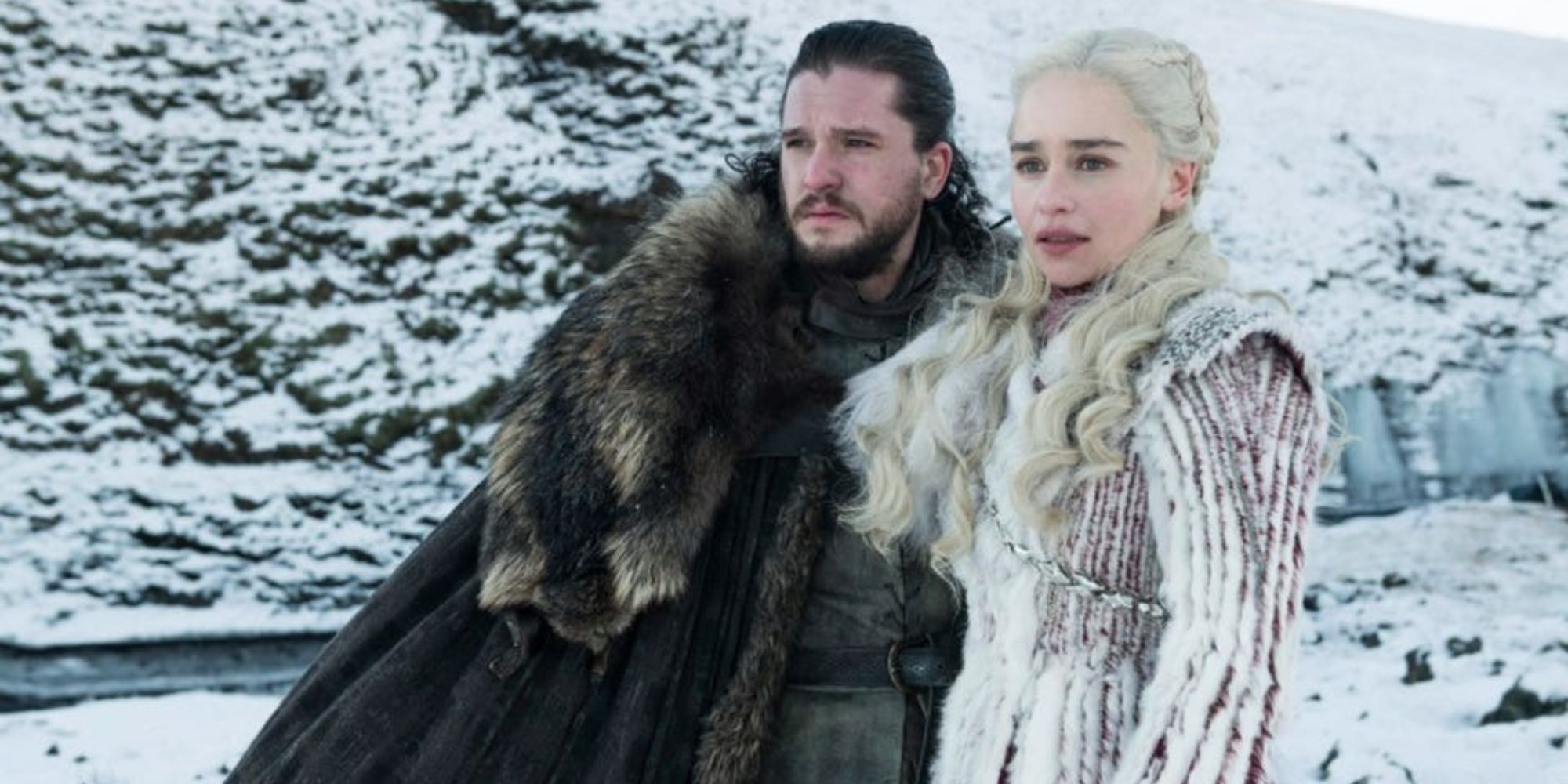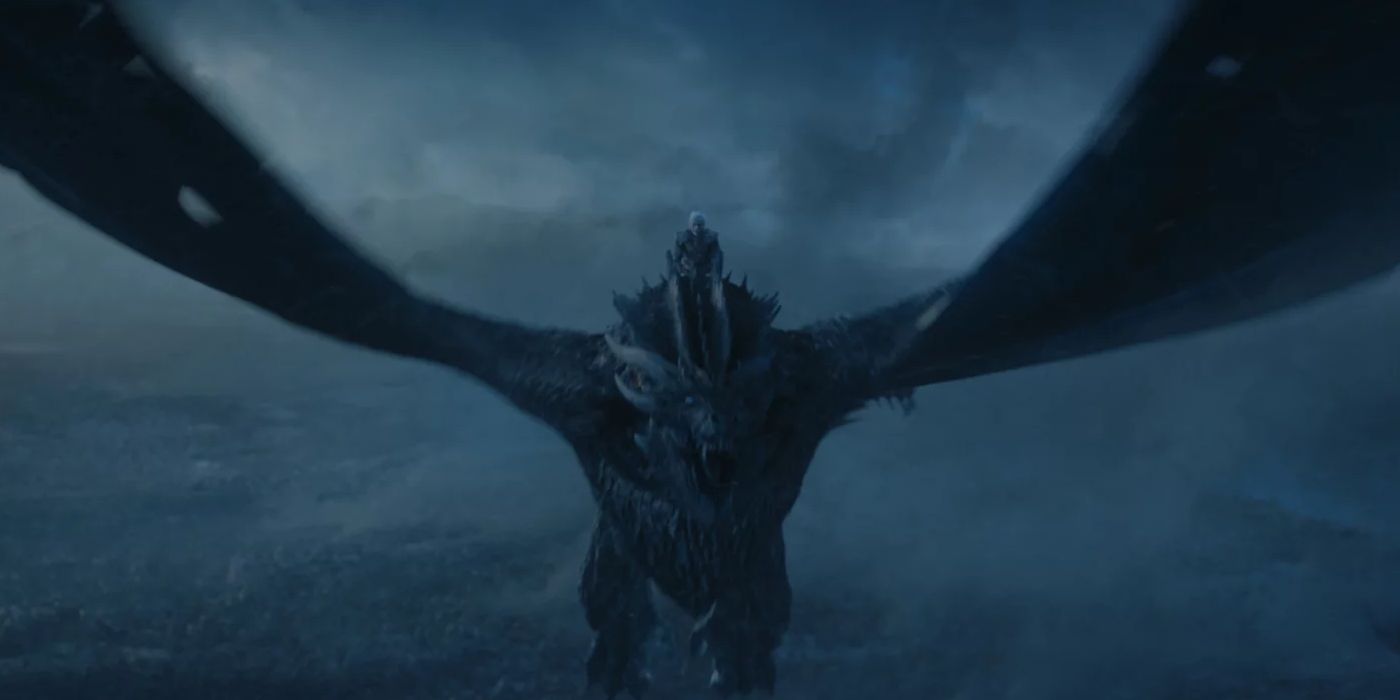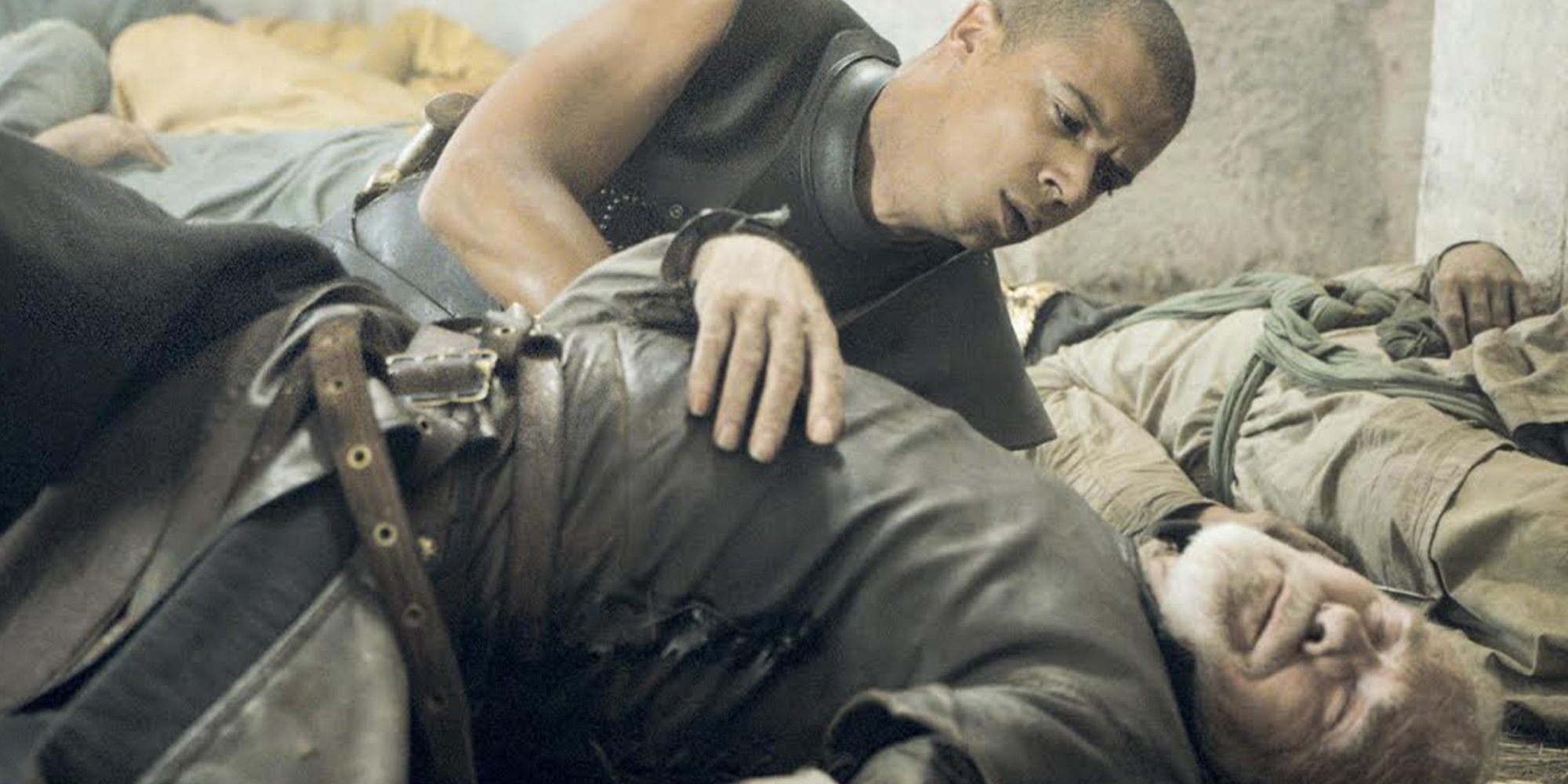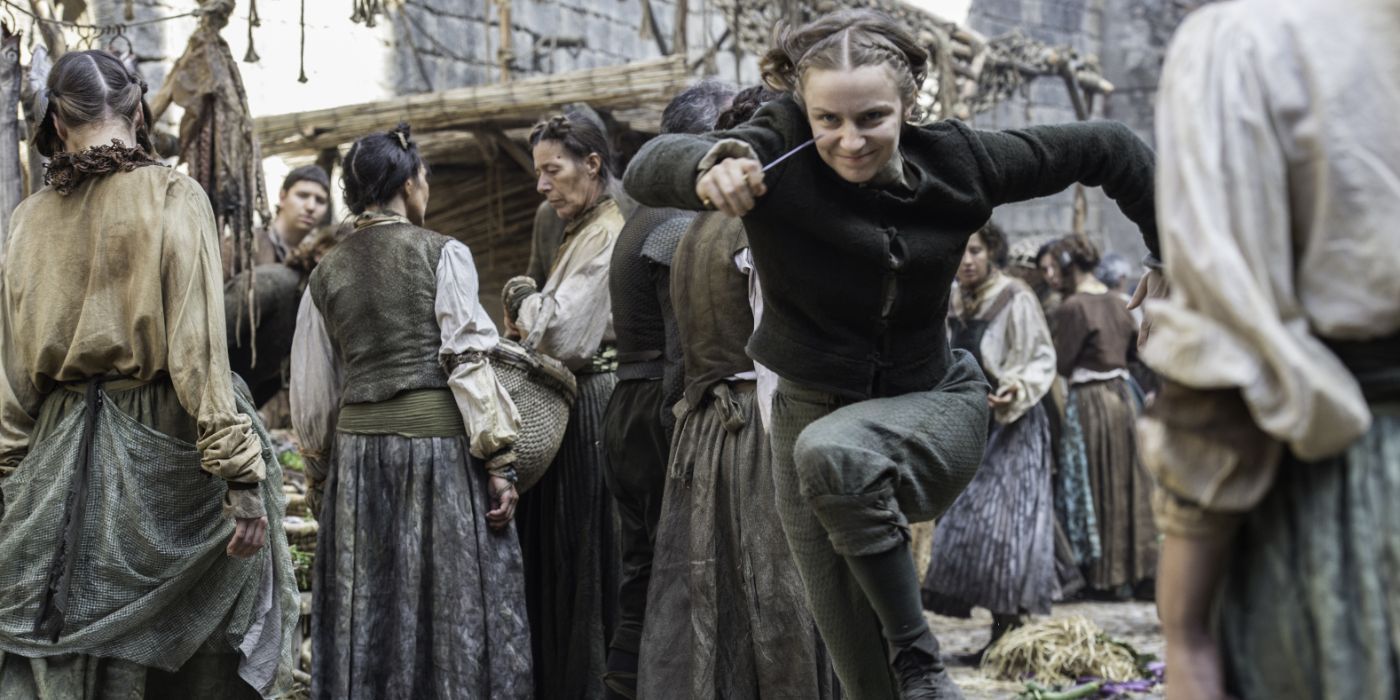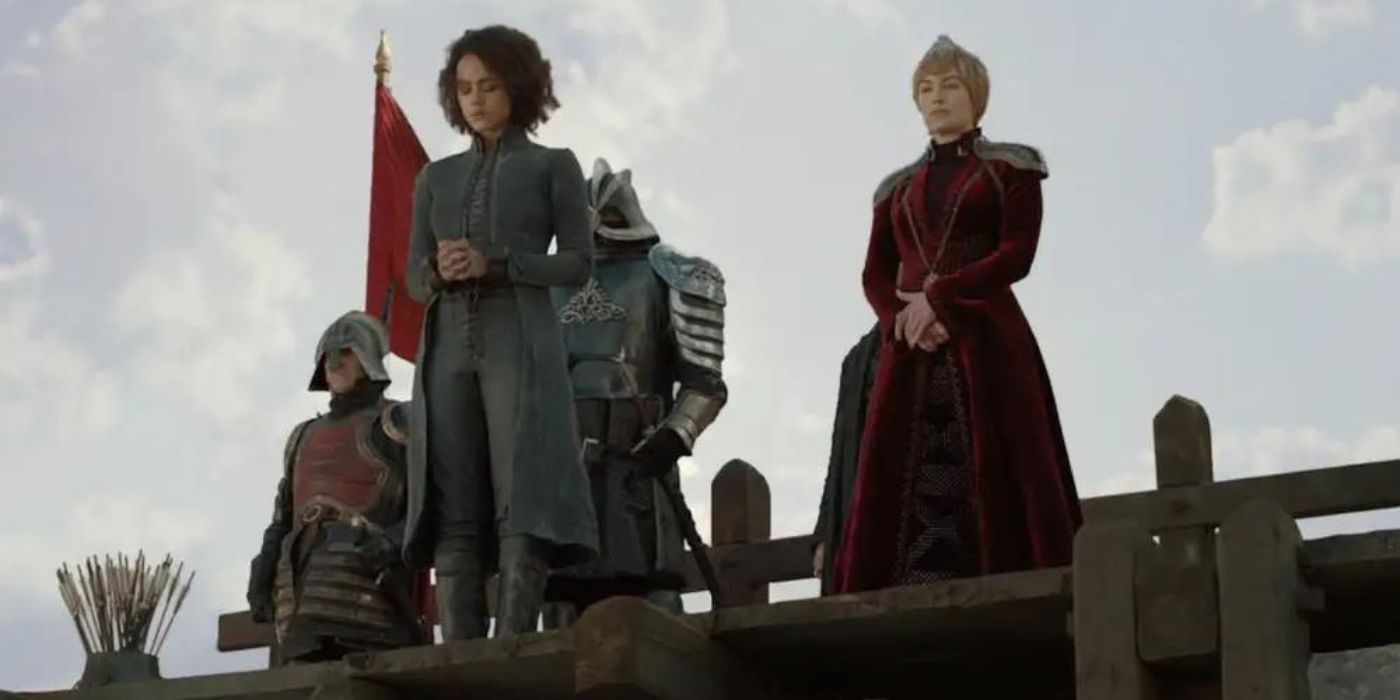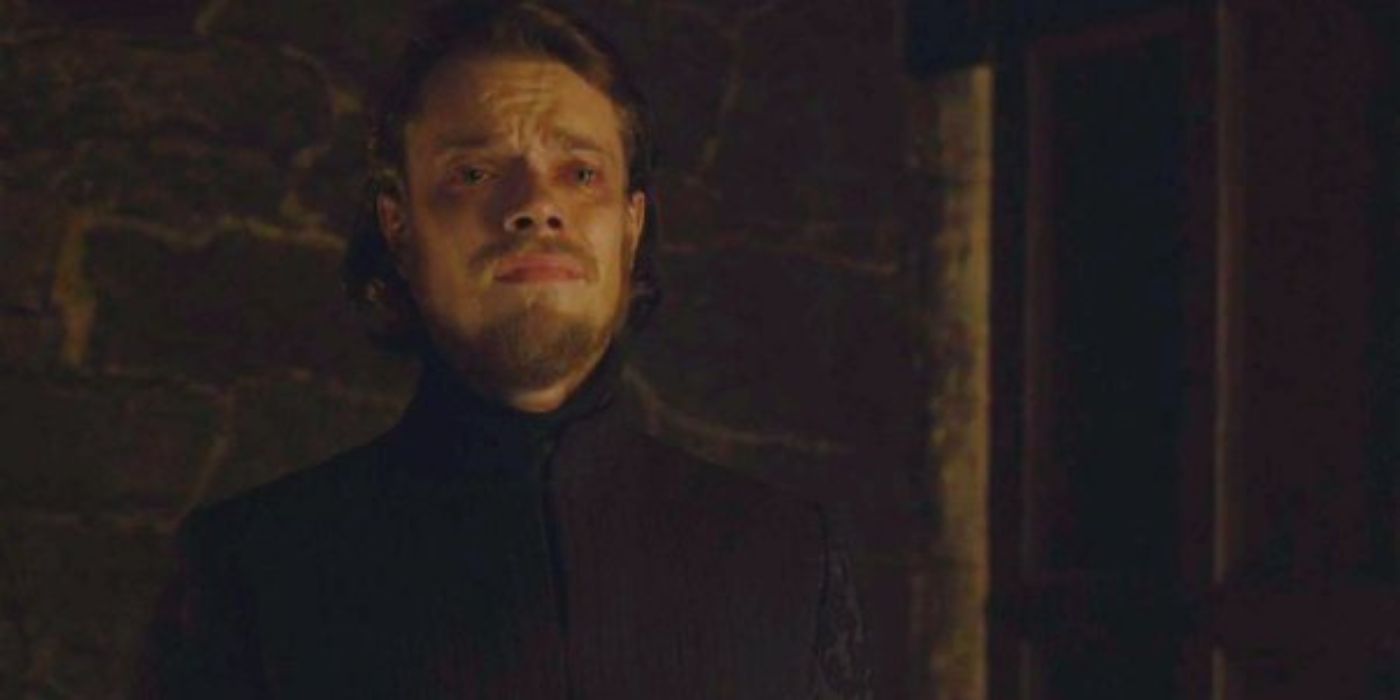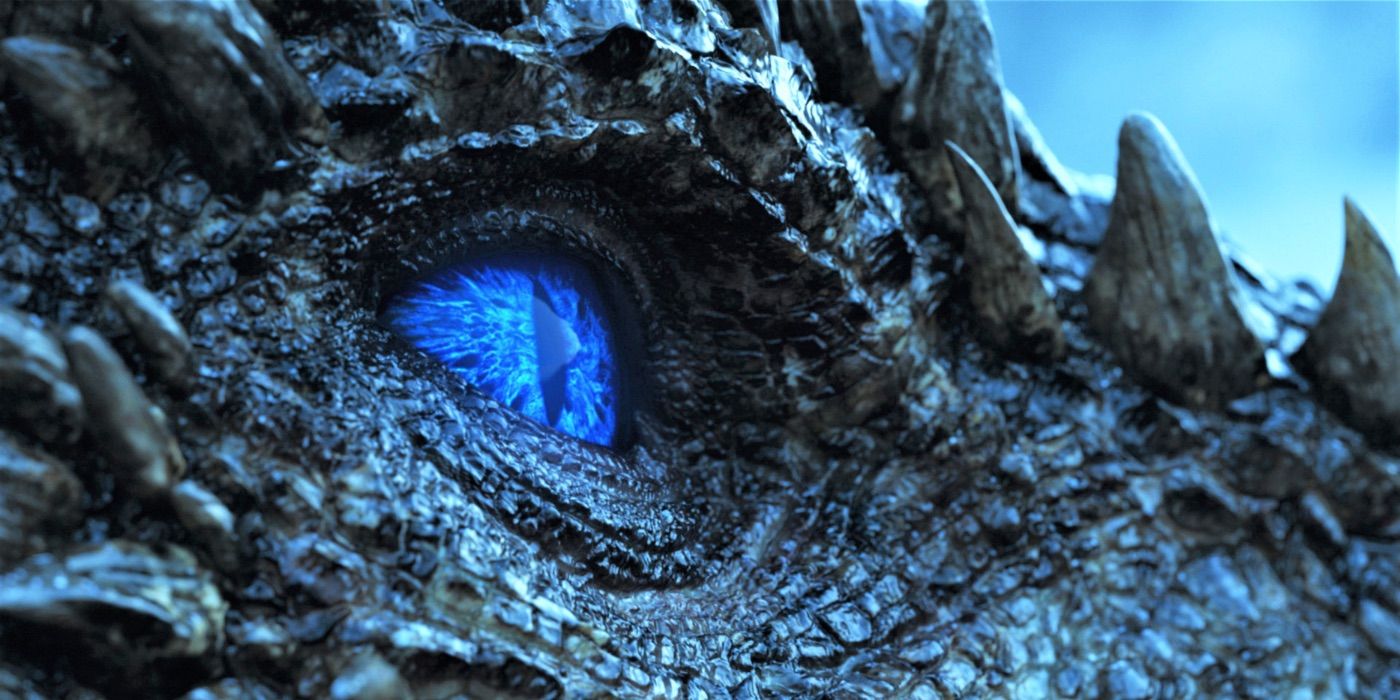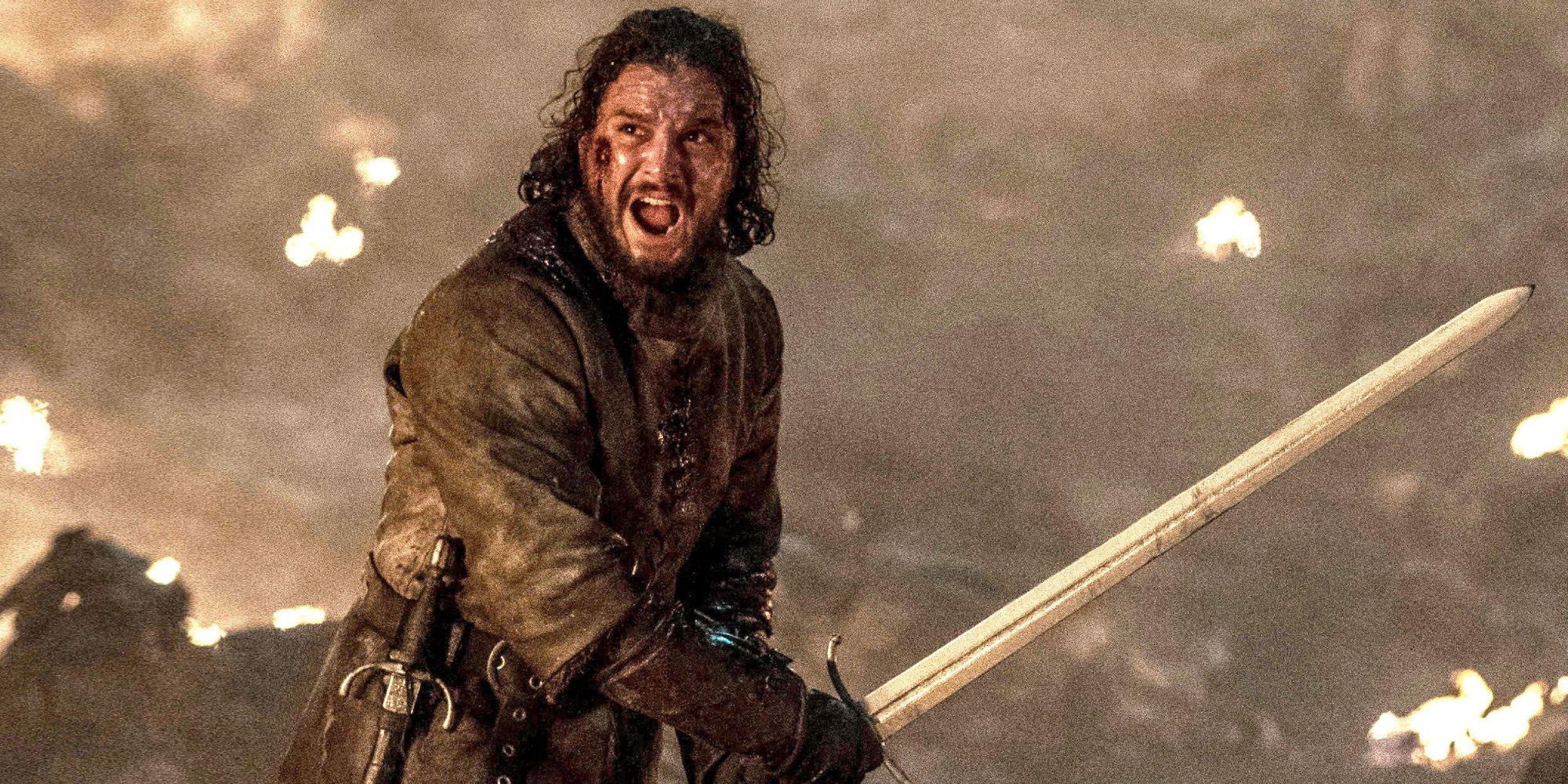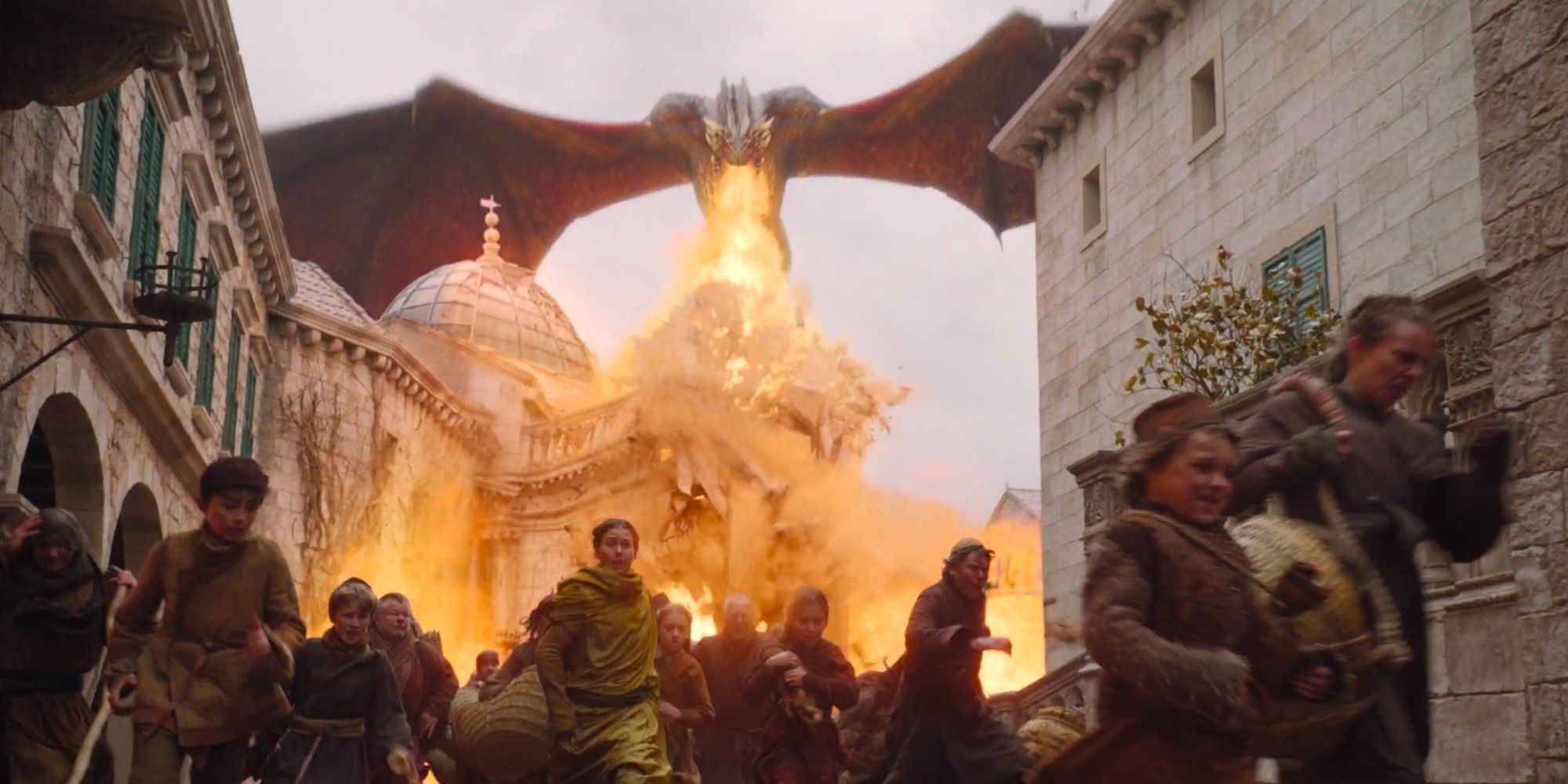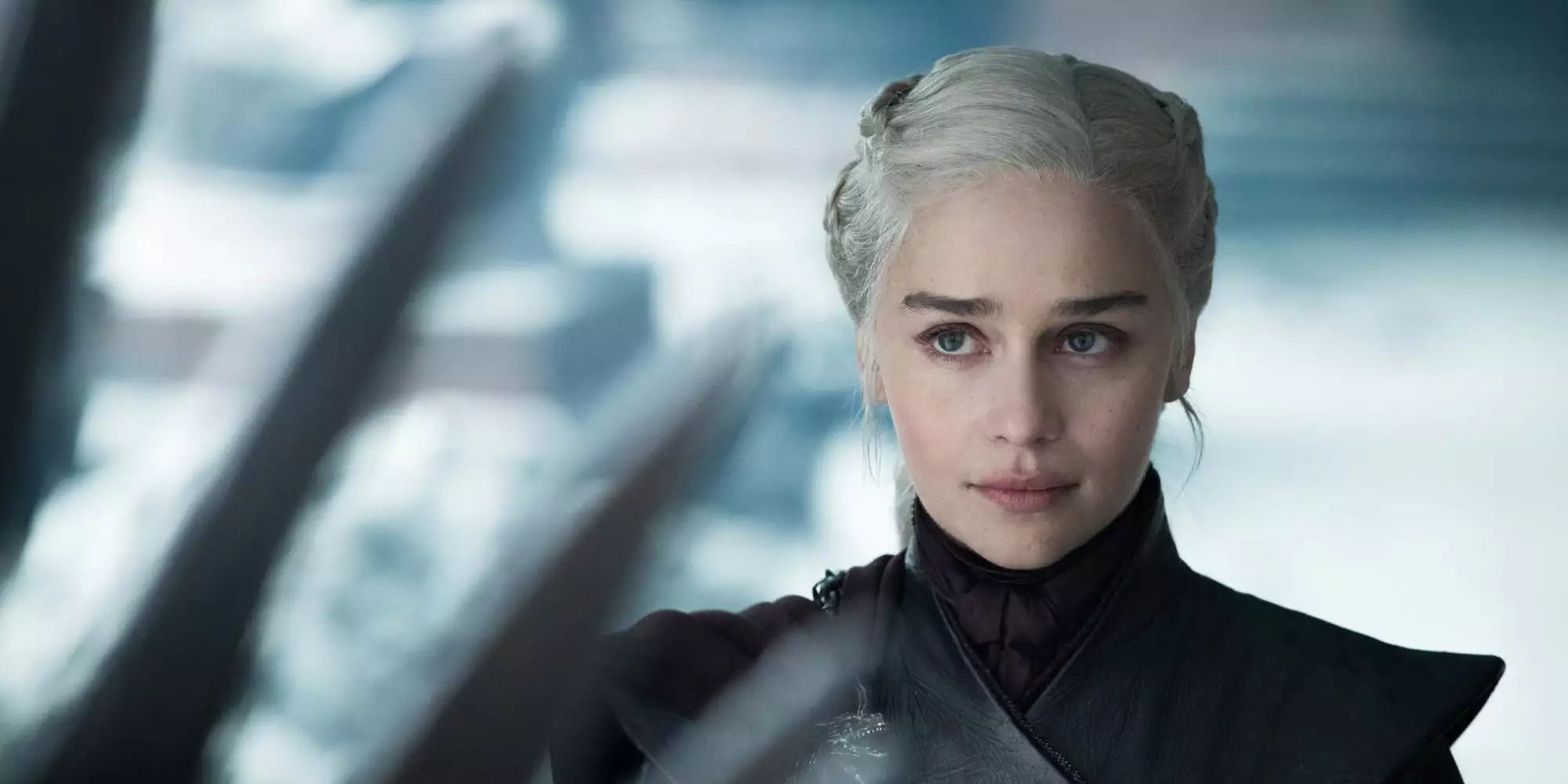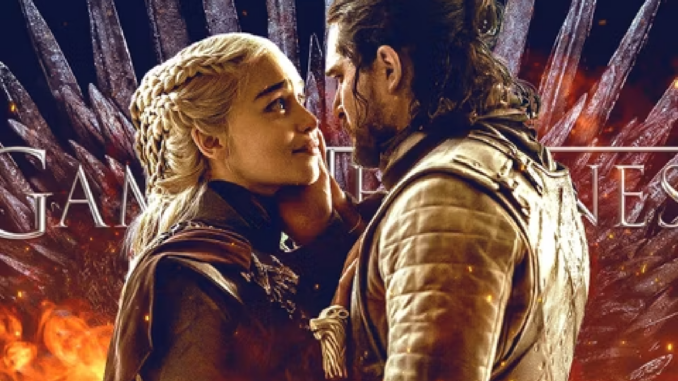
During the 2010s, Game of Thrones was one of the juggernauts of popular culture and helped to re-invigorate the television fantasy genre. Based on the Song of Ice and Fire books by George R. R. Martin, the show transported audiences to the continent of Westeros, inhabited by noble families who scheme to acquire more power. As they wage massive wars against one another for the right to sit on the Iron Throne, a banished princess hatches dragons in the far East and an army of the dead marches from the frozen North.
Game of Thrones quickly became an example of brilliant writing that effortlessly blended political intrigue, emotional drama, and violent action. Unfortunately, the show’s writing suffered massively as the years went on and became a pale reflection of its former glory. Indeed, Game of Thrones‘ worst episodes are bad enough to sour its reputation, and to this day, most people only talk about how disastrously the show ended.
10.“Winterfell”
Season 8, Episode 1
With the armies of the Night King (Vladimir Furdik) marching south, Queen Daenerys Targaryen (Emilia Clarke) and Jon Snow (Kit Harington) join forces to stop him. Unfortunately, many of Jon’s northern allies, including his sisters Sansa (Sophie Turner) and Arya (Maisie Williams), dislike the idea of serving a Targaryen. Meanwhile, Theon Greyjoy (Alfie Allen) rescues his sister, Yara (Gemma Whelan), from their uncle Euron (Pilou Asbæk), and Ser Bronn (Jerome Flynn) is hired to kill Ser Jaime (Nikolaj Coster-Waldau) and Tyrion Lannister (Peter Dinklage).
“Winterfell” did little to reassure audiences of its quality when its first line of dialogue is a eunuch joke by Tyrion directed toward Lord Varys (Conleth Hill). This juvenile writing permeates the entire episode: the Stark women hate Daenerys to give the show some drama before the ice zombies show up, and the non-Winterfell plots are quickly rushed through so we can get back to the pre-battle melodrama. The scene of Jon learning how to ride Daenerys’ green dragon, Rhaegal, also feels rushed, with no time given to exploring the bond between man and dragon, making it feel like arbitrary training sandwiched between wooden romance scenes.
9.“The Dragon and the Wolf”
Season 7, Episode 7
With an undead wight in their possession, Jon and Daenerys bring their prisoner to Queen Cersei Lannister (Lena Headey) in the hopes of convincing her to aid them against the coming invasion. Back at Winterfell, Sansa, Arya, and Bran (Isaac Hempstead Wright) work together to defeat master manipulator Lord Petyr Baelish (Aidan Gillen). Elsewhere, Theon attempts to rally his remaining men to save Yara from captivity, and the Night King uses an undead Viserion to destroy the Wall.
There are a few good moments in “The Dragon and the Wolf,” like the character interactions — especially Tyrion and Cersei’s conversations, always a highlight of Game of Thrones. The Wall crumbling down is also the perfect way to hook audiences for next season. However, the flaws with this episode are quite glaring, such as the terrible chemistry between Jon and Daenerys and the reveal of Jon’s parentage, which was criticized for making Prince Rhaegar Targaryen (Wilf Scolding) too similar to his younger brother, Viserys (Harry Lloyd). Then there is Baelish’s death, which feels completely unearned and hollow, a sad ending for what is arguably the show’s smartest character.
8.“Sons of the Harpy”
Season 5, Episode 4
As King Stannis Baratheon (Stephen Dillane) prepares to march against the Boltons in the North, his Red Priestess, Melisandre (Carice van Houten), attempts to seduce Jon to get him to join them. In the south, Cersei empowers the High Sparrow (Sir Jonathan Pryce) by allowing him to rebuild the Faith Militant, and in Dorne, Ellaria Sand (Indira Varma) and the Sand Snakes join forces to avenge Prince Oberyn Martell (Pedro Pascal). In Mereen, more of Daenerys’ forces are attacked by a terrorist group called the Sons of the Harpy, leading to the death of her loyal knight, Ser Barristan Selmy (Ian McElhinney).
“Sons of the Hapry” is a reminder that the show’s downfall began as early as Season 5. The pacing feels like it’s trying to do too much with not enough time: plotlines like the rise of the Sparrows and Stannis sharing a tender moment with his daughter, Shireen (Kerry Ingram), are good, but then they’re juxtaposed with the introduction of the Sand Snakes or Melisandre trying to seduce Jon, which feel strangely paced and awkwardly acted. The unceremonious death of Barristan Selmy is the episode’s biggest sin, especially since the character is alive in the books and plays a major role after Daenerys leaves the city.
7.“No One”
Season 6, Episode 8
Having been stabbed by the Waif (Faye Marsay), Arya wanders through Braavos until she is found by Lady Crane (Essie Davis), who does what she can to nurse her back to health. Unfortunately, the Waif kills Crane, leading to a high-speed chase as Arya attempts to evade this trained assassin. Back in Westeros, King Tommen Baratheon (Dean-Charles Chapman) outlaws Trial by Combat, Sandor Clegane (Rory McCann) runs into the Brotherhood Without Banners, and Jaime attempts to end the siege at Riverrun.
“No One” is an incredibly underwhelming episode that runs on the logic of “don’t question the writing, just enjoy the visuals.” The conclusion to Arya’s storyline has so many holes in its logic: how can Arya beat the Waif despite being severely injured? Why does Jaqen H’ghar (Thomas Wlaschiha) say she is finally No One, and why does Arya have divine protection from the writers? Meanwhile, Sandor’s storyline feels like he’s regressed into a violent murderer after finding peace, and the siege of Riverrun ends with yet another disappointing death, this time Brynden “Blackfish” Tully (Clive Russell).
6.“The Last of the Starks”
Season 8, Episode 4
With the Night King defeated, Jon and Daenerys prepare to march south to defeat Cersei and finally bring peace to Westeros. However, the knowledge that Jon is both the true heir to the Iron Throne and Daenerys’ nephew causes friction between them, and Sansa spreads the secret to Tyrion. Worse yet, Daenerys’ poor memory leads to her sailing into a devastating ambush.
“The Last of the Starks” is an episode that relies on the characters being dumbed down. It continues the trend from Season 7 of foolish decisions robbing Daenerys of her advantage, in this case, losing Rhaegal and her trusted handmaiden and advisor, Missandei (Nathalie Emmanuel), to create the illusion that Cersei has a chance of defeating her. Combined with the Jon melodrama, it feels like the writers are trying to rush as many bad things happening to Daenerys as possible to justify her fall to madness. Missandei remains Game of Thrones‘ most unforgivable death, while Dany “kind of forgetting” about the Iron Fleet and Euron’s forces is possibly the show’s dumbest decision.
5.“Unbowed, Unbent, Unbroken”
Season 5, Episode 6
After giving Sansa Stark to House Bolton, Petyr Baelish asks Cersei for permission to lead an invasion of the North using the Knights of Vale, unaware that Ramsay Bolton (Iwan Rheon) has married Sansa and forced himself upon her while forcing Theon to watch. Meanwhile, the Faith Militant seizes Loras (Finn Jones) and Margaery Tyrell (Natalie Dormer), and in Dorne, Jaime and Bronn get into a fight with the Sand Snakes. Across the sea, Arya continues her training while slavers capture Tyrion and Ser Jorah Mormont (Iain Glen).
Before Season 8, “Unbowed, Unbend, Unbroken” was the lowest-rated episode of Game of Thrones, mainly for the controversial scene where Ramsay assaults Sansa. After Season 4 promised that Sansa would be moving away from victimhood, it’s infuriating to see her pain being used to motivate Theon’s development, not to mention the damage it does to Baelish for giving her up in the first place. Beyond Sansa’s scene, the other plotlines are lackluster, except for Dorne, which is laughably bad due to its terribly choreographed fight and baffling writing choices.
4.“Beyond the Wall”
Season 7, Episode 6
To capture a wight, Jon leads an expedition north of the Wall. While they’re eventually able to capture one, Thoros of Myr (Paul Kaye) is mortally injured by a zombie polar bear, and the others are stuck on a frozen lake when the army of dead descends on them. Gendry (Joe Dempsie) runs back to the Wall to send a message to Daenerys, while in Winterfell, tension builds between Sansa and Arya.
Aside from some decent comradery between the expedition members, there’s nothing redeemable here. “Beyond the Wall” showcases the problems of late Game of Thrones, from almost every character having plot armor and the power to teleport across Westeros to inserting whatever the writers think would be cool regardless of how it impacts the plot. The fact that the next episode proved that nothing positive came from this expedition makes it a rash, foolish decision by our heroes that hastened the White Walker’s plans.
3.“The Long Night”
Season 8, Episode 3
As night falls upon Winterfell, the armies of the living gather outside the castle to face the army of the dead. They plan to use Bran as bait to lure the Night King into the open and kill him with dragonglass and dragon fire, trusting that if the Night King dies, the White Walkers and wights will, too. Unfortunately, the army of the dead is larger than anticipated, and even two dragons might not be enough to stop them.
“The Long Night” is terrible for so many reasons, such as its atrocious lighting, terrible military tactics, and insulting conclusion to the White Walker storyline. From the beginning, Game of Thrones has presented the White Walkers and the Night King as the greatest threat the Lords of Westeros will ever face, yet this episode has them die at Winterfell so that everyone can spend three episodes squabbling over a chair made of swords. The fact that Arya kills the Night King instead of Jon or Daenerys is another example of how the writers change things because they think it’s cool since her actions render the Azor Ahai prophecy pointless.
2.“The Bells”
Season 8, Episode 5
Seeing the trajectory Daenerys is heading, Varys attempts to place Jon on the Iron Throne, but he is betrayed by Tyrion and executed. Tyrion also allows Jaime to enter King’s Landing in the hopes that he can run away with Cersei, while Arya and Sandor infiltrate the city to take revenge on those who have wronged them. When the attack begins, Daenerys easily defeats the defending army, but when she hears the bells ring, she mounts Drogon and murders countless civilians.
What Game of Thrones does to Daenerys is among the worst examples of character assassination in fiction. The idea of her descending into madness has some merit, but it’s handled so poorly and required so many convoluted writing decisions that audiences can do nothing but watch in a hollow fury as the woman who liberated slaves is now burning innocent men, women, and children. Besides Daenerys, the episode also sees Jon completely incapable of controlling his soldiers, Arya’s plot armor allowing her to survive the streets of King’s Landing, and Jaime and Euron having an arbitrary and unfulfilling swordfight.
1.“The Iron Throne”
Season 8, Episode 6
With Cersei dead and King’s Landing in ruins, Daenerys finally claims the Iron Throne but makes plans to continue her conquests in other lands for the supposed betterment of everyone. Jon confronts Daenerys and, realizing she is truly gone, kills her. Her surviving warriors take him prisoner, and a few months later, the remaining lords of Westeros gather to decide Jon’s fate and who will be the new King.
Game of Thrones‘ infamously bad ending has gone down in history. “The Iron Throne” cemented Season 8’s terrible legacy by delivering an ending that satisfied no one. A vast majority of the screen time is dedicated to watching characters walk from one location to the next, and the dialogue remains juvenile and uninspired. Most of the character’s fates don’t make sense either, including Bronn becoming both the lord of Highgarden and Master of Coin, Bran being chosen as king because he has the “best” story, and the North getting its independence from the Seven Kingdoms, but other kingdoms like Dorne and the Iron Islands not even trying to ask for their own. “The Iron Throne” is rushed and lazy, attempting to be shocking and unexpected and instead coming across as underbaked and nonsensical.
